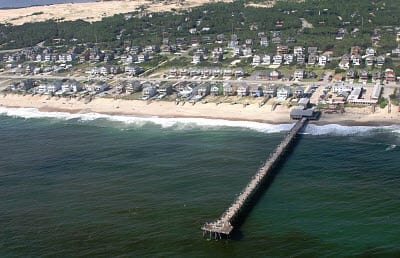Coastal leaders are seeking new ways to settle these rates, underscoring that this will benefit policyholders across the state.
In North Carolina, coastal leaders are currently leading an effort to reform the property insurance rate setting process, while still making sure to point out that the legislation that they are proposing would be to the benefit of people across the entire state and not just those who have homes along the coastlines.
The reforms would be based on the belief that there is a flaw in the current rate calculation process.
A recent N.C. Department of Insurance hearing concluded that the arguments that had been made by opponents that the process of making rates for property insurance was flawed. This, at a time in which the last five years have brought several rate increases to people in coastal communities. According to the North Carolinians for Fair Property Insurance (NCFAIR) president, Willo Kelly, “We’re not only looking to protect policyholders from unfair practices, we’re looking at making rates affordable.” That grassroots coalition has placed its support behind the legislation proposal.
The idea is that while coastal counties will benefit from property insurance rate calculation reforms first, benefits are universal.
 Willo Kelly is also an NC-20 board member. NC-20 is an advocate organization for North Carolina coastal counties. They have been battling for insurance rate reforms for many years and are now at the head of the NCFAIR move to boost support throughout the state for the S208 and H182 companion bills.
Willo Kelly is also an NC-20 board member. NC-20 is an advocate organization for North Carolina coastal counties. They have been battling for insurance rate reforms for many years and are now at the head of the NCFAIR move to boost support throughout the state for the S208 and H182 companion bills.
The primary sponsor of H182 is Rep. Chris Millis (R-Onslow and Pender counties), but the bill was also sponsored by House Rules chairperson, Rep. David Lewis (Harnett County) and House majority leader Mike Hager (Burke and Rutherford counties).
These bill sponsors are also representatives of the parts of the state that have experienced some of the biggest rises in their property insurance rates within the most recent filings. That said, there have also been over thirty other reps who have co-sponsored this bill, including Rep Phil Shepard and Rep. George Cleveland. When it comes to the Senate bill, the primary sponsor was Senator Harry Brown (R-Onslow).
